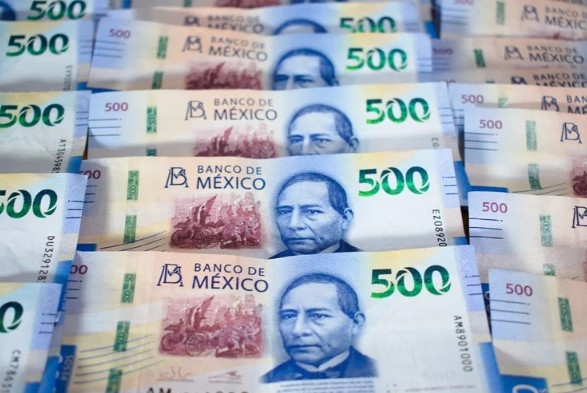Since last November 11, it was reported through a statement that the federal government closed 13 casinos with establishments and digital platforms for its million-dollar cash operations, international flows and its alleged relationship with organized crime.
The closed ones have irregular operations in 8 different entities: CDMX, Edomex, Nuevo León, Jalisco, Chiapas Sinaloa, Sonora and Baja California.
Two of the companies, “Ganador Azteca” and “Operadora Ganadora Tv Azteca”, are gaming and sweepstakes subsidiaries of Grupo Salinas.
In response, Ricardo Salinas’ company stated that the closure and investigation is to harass them.
“One more action of harassment and systematic persecution by the State.”
The investigation was carried out by the departments of the Security Cabinet, made up of the Secretariats of National Defense, Navy, Interior, and SSPC, as well as the Attorney General’s Office (FGR) and the National Guard (GN).
Likewise, the Financial Intelligence Unit (UIF) and the Federal Prosecutor’s Office (PFF), both belonging to the SHCP.
The following were identified through the crossing of banking, fiscal and monetary information, as well as the detection of complex financial structures and economic networks that simulated legal operations to move illicit money:
-Risk patterns
-Unusual operations
-International financial links
He money laundering in these casinos, officially known in Mexico as the crime of operations with resources of illicit originis carried out in the following way, according to the Prosecutor’s Office.
Three washing patterns detected
. Casinos with cash operations and tax simulation, which dispersed resources between subsidiaries and presented zero returns.
. Casinos with unjustified international flows, which transferred amounts to Romania, Switzerland and the United States without support.
.Unsupervised digital platforms, which operated online payments to Malta and the United Arab Emirates, outside of national regulation.
Recruitment of ordinary people
Casinos involved individuals who did not handle large amounts of money: young people, students, workers, housewives or retirees.
In many cases they were deceived or had their identities stolen to open accounts or move funds without your knowledge.
Use of prepaid cards or codes
The operators of the scheme sent these people prepaid cards or prize codes with money of unknown origin.
The instruments could be used in physical casinos or on digital betting platforms.
Simulated bets
With the cards or codes, were carried out bets that were not actually genuine, and sometimes, they did not even know that they were participating in an illicit scheme, since the transactions appeared as part of regular games.
False awards and transfers abroad
The casino system recorded that the person had obtained “million-dollar profits”; however, that money never reached the player, since it was immediately transferred to accounts abroad, mainly in countries considered tax havens.
International laundering cycle
Already with funds outside the countrythese were dispersed to different destinations, such as Malta, United Arab Emirates, Romania, Switzerland or Panama, and they were mixed with legal operations or reinserted into other bets.
Forwarding of a part to the participant
In In some cases, the player did receive a small portion of the supposed profits, but he was asked to will be used for new operations or forwarded it to other accounts, thus completing the laundering circle.
Back to Mexico
After the international tour, the money returned to Mexico under the guise of legal profits or business income; By going through multiple intermediaries, the operations seemed normal and difficult to trace.
Again and again
He process was repeated hundreds or thousands of times in different casinos and digital platforms. Each individual transaction seemed legitimate, but together they formed an organized structure to launder large volumes of money.
Based on the findings, the authorities took the following specific measures, in this order:
1. Visit to the Tax Prosecutor’s Office for possible tax crimes and tax evasion.
2. Complaints to the FGR for operations with resources of illicit origin.
3. Temporary suspension of physical establishments involved.
4. Blocking electronic platforms of out-of-regulation digital casinos.
5. Freezing of bank accounts linked to the detected operations.
6. New stage of prevention







